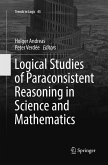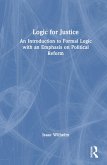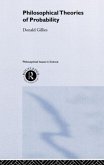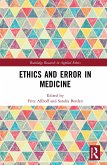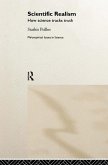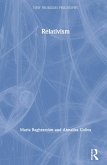If there has been some modest advance, since Karl Popper's death in 1994, in the general understanding of his critical rationalist theory of knowledge and philosophy of science, there is still widespread resistance both to it and to the recognition of the magnitude of his contribution. Popper long ago diagnosed the logical problems of traditional enlightenment rationalism (as did some irrationalists), but instead of pretending that they are readily solved or embracing irrational defeatism (as do postmodernists), he provided a cogent and liberating rationalist alternative. This book promotes, defends, criticizes, and refines this alternative. David Miller is the foremost exponent of the purist critical rationalist doctrine and here presents his mature views, discussing the role that logic and argument play in the growth of knowledge, criticizing the common understanding of argument as an instrument of justification, persuasion or discovery and instead advocating the critical rationalist view that only criticism matters. Miller patiently and thoroughly undoes the damage done by those writers who attack critical rationalism by invoking the sterile mythology of induction and justification that it seeks to sweep away. In addition his new material on the debate on verisimilitude is essential reading for all working in this field.
Hinweis: Dieser Artikel kann nur an eine deutsche Lieferadresse ausgeliefert werden.
Hinweis: Dieser Artikel kann nur an eine deutsche Lieferadresse ausgeliefert werden.
'David Miller's uncommon sense, elegant phrasing, and application of the critical rationalist method to its own products provide a rich source of insight, not only about Popper's work but about disciplined inquiry in general. The chapters on Popper contain important new insights and the material on topics as varied as Azande reasoning and Tarski's theory of truth is equally rewarding.' - Paul Humphreys, University of Virginia, USA
'The unpretentious solidity of Miller's reasoning makes this book compelling reading for people interested in the discovery and status of knowledge. After a penetrating account of Popper's philosophy, Miller branches out into revealing examinations of a number of special topics, all treated with convincing clarity - an exemplary performance of critical rationalism.' - Peter Munz, Victoria University of Wellington, New Zealand
'For over three decades David Miller has been one of the most brilliant expositors of Critical Rationalism. In this exquisite collection of essays, he has broken new paths. His radical skepticism takes Popper's philosophy in unexpected directions, drawing this anti-authoritarian philosophy to its limits. Staking out the Critical Rationalist position in the "science wars," he vindicates a search for truth which is nothing but error elimination. He purges any residual comfort or assurance that competing philosophies may offer. The ramifications for our political, legal, and scientific practices, and for the relationship between science and technology, are tremendous. The implications will require careful deliberation in years to come. Miller's book will unsettle many, and this is precisely why one should read and think through this book.' - Malachi Haim Hacohen, Duke University, USA
'Miller's book is an important one because it takes on both postmodernism and traditional rationalism and offers a viable alternative to both: critical rationalism.' - Higher Education Review
'The unpretentious solidity of Miller's reasoning makes this book compelling reading for people interested in the discovery and status of knowledge. After a penetrating account of Popper's philosophy, Miller branches out into revealing examinations of a number of special topics, all treated with convincing clarity - an exemplary performance of critical rationalism.' - Peter Munz, Victoria University of Wellington, New Zealand
'For over three decades David Miller has been one of the most brilliant expositors of Critical Rationalism. In this exquisite collection of essays, he has broken new paths. His radical skepticism takes Popper's philosophy in unexpected directions, drawing this anti-authoritarian philosophy to its limits. Staking out the Critical Rationalist position in the "science wars," he vindicates a search for truth which is nothing but error elimination. He purges any residual comfort or assurance that competing philosophies may offer. The ramifications for our political, legal, and scientific practices, and for the relationship between science and technology, are tremendous. The implications will require careful deliberation in years to come. Miller's book will unsettle many, and this is precisely why one should read and think through this book.' - Malachi Haim Hacohen, Duke University, USA
'Miller's book is an important one because it takes on both postmodernism and traditional rationalism and offers a viable alternative to both: critical rationalism.' - Higher Education Review


